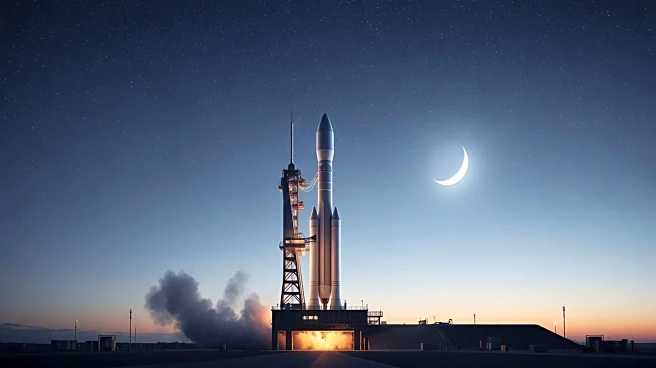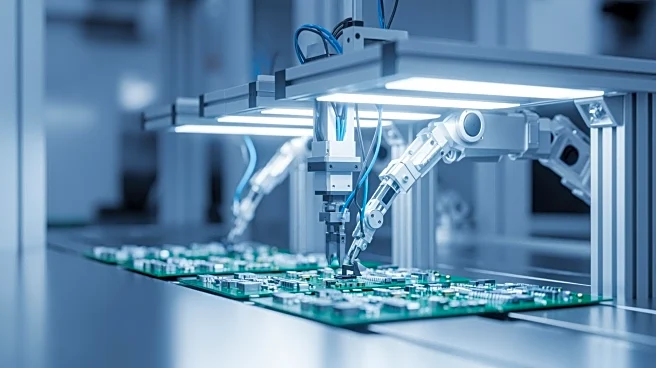What's Happening?
SpaceX's next-generation Starship booster, 'Booster 18,' experienced a failure during a critical ground pressure test, causing partial damage to the vehicle. The test aimed to assess the structural integrity of the booster by filling it with gas instead
of propellant. The failure is expected to delay SpaceX's development schedule for the Starship V3 version, which is intended for NASA's Artemis program to land astronauts on the Moon. The V3 version features a redesigned propellant system and structural enhancements, including a 'hot-stage ring' for improved engine ignition.
Why It's Important?
The failure of the Starship booster test poses a setback for SpaceX's role in NASA's Artemis program, which aims to return humans to the Moon. Delays in the Starship's development could impact the timeline for lunar exploration, affecting NASA's plans and potentially leading to reconsideration of contracts with other space companies. The incident highlights the challenges in advancing space technology and the importance of rigorous testing to ensure mission success. SpaceX's ability to address these issues will be crucial for maintaining its position in the competitive space industry.
What's Next?
SpaceX will conduct an investigation to determine the cause of the test failure, which may lead to design modifications and further testing. The company has submitted a streamlined mission plan to NASA to accelerate the return to the Moon while enhancing crew safety. Stakeholders, including NASA and other space agencies, will closely monitor SpaceX's progress and response to the setback. The outcome of these efforts will influence future collaborations and the pace of lunar exploration initiatives.















